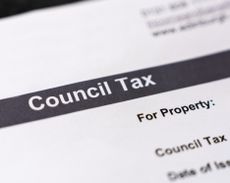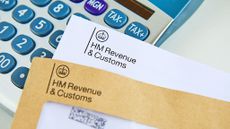Tax
The latest news, updates and opinions on Tax from the expert team here at MoneyWeek
Explore Tax
-

How Junior ISAs could help with inheritance tax planning
Looming inheritance tax changes will limit how much pension wealth can be passed on but more people may be maxing out their loved ones’ JISA allowance instead
By Marc Shoffman Published
-

How to check your council tax band
Tips Thousands of homeowners continue to overpay for council tax because they are in the wrong band. We look at how to check your council tax band and how to challenge it.
By Daniel Hilton Last updated
Tips -

Rachel Reeves is rediscovering the Laffer curve
Opinion If you keep raising taxes, at some point, you start to bring in less revenue. Rachel Reeves has shown the way, says Matthew Lynn
By Matthew Lynn Published
Opinion -

Pension tax relief: why the taxman could owe you money
Millions of pounds in pension tax relief is going unclaimed. If you haven't yet completed your tax return ahead of the 31 January deadline, don't forget to claim any tax relief you’re owed.
By Laura Miller Last updated
-

HMRC stamp duty crackdown sees probes of property deals jump 88% – what to watch out for
From bogus stamp duty refund claims to misleading the taxman about who owns a property, HMRC is increasing its scrutiny of stamp duty land tax reporting. Here’s how.
By Laura Miller Published
-

Double inheritance tax payment window for pensions and family businesses, Lords tell government
The government is pressing ahead with plans to charge inheritance tax on pensions, farms and other family businesses but there are warnings that it will be harder for executors to administer an estate and pay HMRC
By Marc Shoffman Last updated
-

When is the self-assessment tax return deadline?
If you are self-employed, rent out a property or earn income from savings or investments, you may need to complete a self-assessment tax return. We run through the deadlines you need to know about
By Daniel Hilton Last updated
-

Self-assessment taxpayers overpaid £8.9 billion last year – could you be owed money?
Millions of taxpayers are paying too much income tax when they file their self-assessment returns, new figures show. Here’s how to avoid overpaying, and the ways to reclaim what you’re owed.
By Laura Miller Published
-

Inheritance tax receipts rise to £6.6 billion as more families pay up
Inheritance tax receipts look set to hit another record high for Treasury this financial year
By Marc Shoffman Last updated
